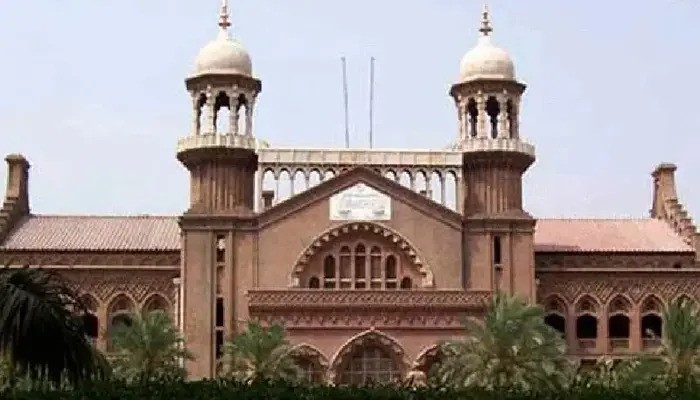The Lahore High Court contempt case took a serious turn on Wednesday when the court summoned National Accountability Bureau (NAB) Chairman Lt Gen (retd) Nazir Ahmed Butt. The move came after NAB failed to comply with an earlier court order related to a pending inquiry against former Punjab finance minister Makhdoom Hashim Jawan Bakht.
Petition Sparks Legal Action
The case began with a writ petition filed in December last year. The petitioner demanded the conclusion of an inquiry into allegations of unauthorised assets. However, NAB neither responded to the application nor resolved the matter.
According to court records, on May 6, the LHC directed NAB Chairman Butt to decide the application within one month. The order stressed that the process must follow the law and that the court’s Judicial Registrar should be kept informed.
Despite this directive, NAB failed to act. The petitioner argued that he was never summoned for a hearing, nor given an opportunity to present his case. With the delay stretching beyond the one-month deadline, he accused NAB of disregarding the law and leaving him helpless.
Read: Bahawalpur Floods Submerge Villages
Allegations of Disobedience
The petitioner highlighted in his plea that NAB’s conduct violated both the court’s explicit instructions and principles of fair process. He argued that the NAB chairman failed to fulfill his responsibility under the May 6 order.
He requested the court to take stern action by charging the NAB chairman under Article 204 of the Constitution, which empowers courts to punish individuals for contempt. The plea also asked for additional charges to be framed against him for neglecting judicial authority.
The Court Hearing
The petition came before a two-member bench of the Lahore High Court, headed by Chief Justice Aalia Neelum. During the hearing, the petitioner reiterated his grievance. He stressed that his request to investigate the assets of Khusro Bakhtiar, former federal minister for industries, and Hashim Jawan Bakht was ignored.
“They did not act despite a court order,” the petitioner argued. “The NAB chairman should face contempt of court proceedings for failing to comply.”
Chief Justice Neelum asked the government lawyer whether NAB had attended the previous hearing. The lawyer confirmed that no representative from the bureau appeared.
Taking note of the absence, the bench ordered NAB Chairman Butt to appear before the court in person on September 15.
Importance of Compliance
The case underscores the judiciary’s insistence on accountability from state institutions. Court directives are binding, and non-compliance can invite serious consequences. The petitioner’s frustration reflects a broader concern: citizens often face delays and neglect from institutions tasked with ensuring accountability.
In this instance, the LHC had given clear and specific instructions. Yet the anti-graft body failed to provide a response or timeline. This neglect not only undermined the petitioner’s right to justice but also challenged the authority of the judiciary.
NAB’s Role Under Scrutiny
The National Accountability Bureau, created to investigate corruption and misuse of authority, often finds itself at the center of legal controversies. Its actions—or inactions—carry significant weight in Pakistan’s political and administrative landscape.
The current case brings into question NAB’s efficiency and adherence to judicial oversight. Critics argue that selective accountability and delays in inquiries weaken public trust. On the other hand, NAB has defended its record in the past, citing heavy caseloads and procedural complexities.
Broader Implications
The contempt notice to NAB’s top official could set a precedent. By summoning the chairman directly, the court signaled its resolve to uphold judicial authority. Such moves highlight that even high-ranking officials are not beyond the reach of accountability.
If the court proceeds with contempt charges, the case could reshape the relationship between NAB and the judiciary. It may push the accountability body to handle pending inquiries more swiftly and responsibly.
What Comes Next
All eyes will now be on the September 15 hearing. The NAB chairman must present his explanation for failing to implement the May 6 order. The court will assess whether the lapse was deliberate or a result of administrative inefficiency.
The outcome may influence not just this specific inquiry but also NAB’s future conduct in handling court-mandated deadlines. For the petitioner, the hearing represents another chance to seek justice in a matter that has dragged on for months.
A Test of Accountability
The Lahore High Court’s decision to summon the NAB chief reinforces a central principle: court orders cannot be ignored. This case is more than a dispute between a petitioner and an institution. It serves as a reminder that the rule of law demands obedience from all, regardless of rank or office.
Follow us on Instagram, YouTube, Facebook,, X and TikTok for latest updates
